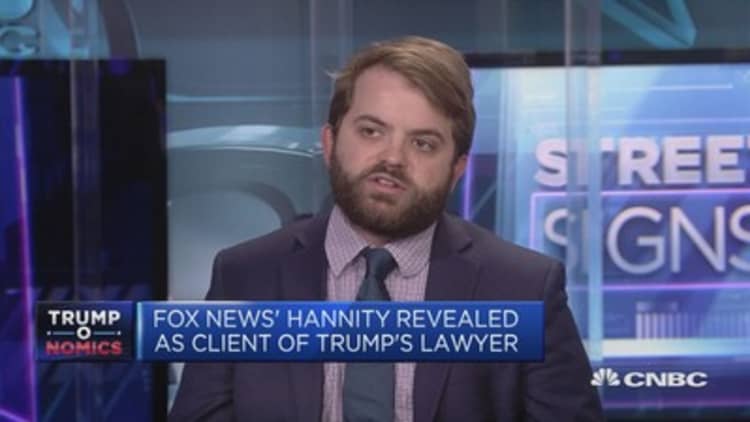Several legal experts have some free advice for President Donald Trump as he mulls whether to submit to an interview with special counsel Robert Mueller: Don't do it.
Those experts say that the risks of talking to Mueller far outweigh any potential reward for undergoing a grilling by the special counsel.
Mueller, who is investigating Russian interference in the 2016 presidential election and possible collusion by the Trump campaign in that scheme, wants the president to do a formal interview with his team of prosecutors.
"What's the upside?" asked Christopher Brennan, a defense lawyer in New York who previously served as a prosecutor in the Manhattan District Attorney's Office.
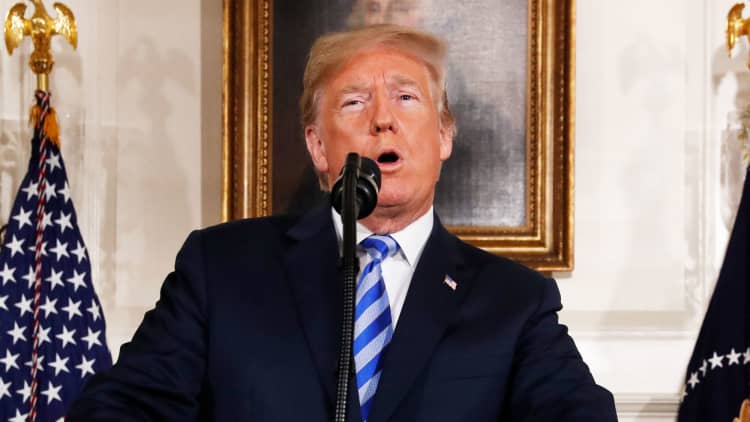
"I don't understand why any potential criminal defendant talks to the prosecutors unless the prosecutor says ... you have immunity" from being charged in connection with what is said during the interview, Brennan said.
Creating a crime
"He's at risk," Brennan said of Trump. "He's not guilty of any crime right now, but if he goes in to talk, then a crime is going to be be created by what he says."
Brennan was referring to the possibility of Trump lying during his interview, which could trigger a criminal charge by Mueller.
Michael Seidman, a professor of constitutional law at Georgetown University, agreed with that view.
"I don't think he has anything to gain [from a face-to-face interview with Mueller] and he has a lot to lose," Seidman said.
"He is, I think it's fair to say, undisciplined," Seidman said of Trump. "I myself think, on a number of things, he's been lying, and he could be easily caught in a lie."
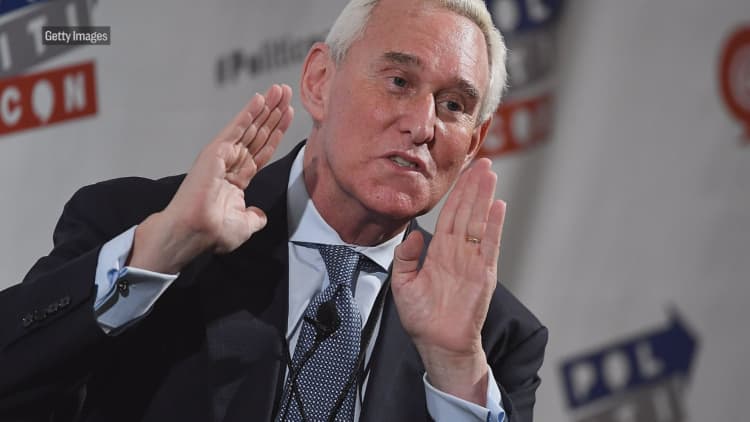
He added: "As a tactical matter, it would not be wise."
Rudy Giuliani, the former New York City mayor who recently joined Trump's legal team, so far has resisted calls by Mueller for a sit-down with the president.
On Sunday, during an interview with ABC News' "This Week," former federal prosecutor Giuliani explicitly referenced the risk Trump faces from such a showdown with Mueller.
"They don't have a case on obstruction, which is why they're asking all these cockamamie questions about what do you feel, what do you think," Giuliani said, referring to Mueller's inquiry on whether Trump obstructed justice in the Russia probe by firing FBI Director James Comey last year.
Perjury vs. lying to investigators
A list of questions, which were revealed by the New York Times last week, include asking Trump's thoughts and reactions to issues related to Comey.
"I'm going to walk him into a prosecution for perjury like Martha Stewart did?" Giuliani asked.
Lifestyle guru Stewart was convicted in 2004 of lying to federal investigators about the circumstances of a stock trade she did. Stewart went to a federal prison for five months because of that crime.
Technically speaking, Stewart was not convicted of perjury, which is lying under oath.
Instead, she was convicted of making false statements to federal investigators, as well as obstruction of justice.
And federal prosecutors can charge people with making false statements during an interview even if the thing being lied about is not a crime.
"When you go in there, you're going to have to tell the truth," said John Marston, a former federal prosecutor in Washington, D.C.
The interview stalemate
The risk for Trump, who has a tendency to talk at length and to make contradictory statements, running afoul of that guidance, has been on the minds of his lawyers since Mueller's probe began last year.
Since then, they had sought, through negotiations with Mueller, to limit what Trump would be asked about, and the duration of any interview he gives.
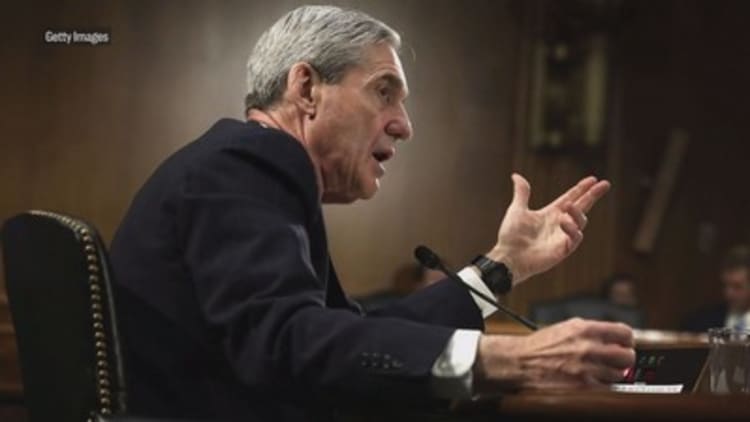
Giuliani, during a meeting with Mueller about two weeks ago, discussed the possibility of Trump answering written questions submitted by the special prosecutor.
But Mueller rejected that offer from Trump's legal team, Giuliani told NBC News.
That leaves Mueller still asking for a face-to-face interview.
Last week, Trump said, "I would love" to do that interview.
"Nothing I want to do more," Trump said. But he quickly added that he first needs to "find that we're going to be treated fairly because everybody sees it now and it's a pure witch hunt."
Subpoena power through history
If Trump ends up refusing to voluntarily talk to Mueller, "this whole thing gets more interesting if Mueller's team issues a subpoena," which would seek to compel the president to submit to questioning, Marston said.
Giuliani has recently said that a subpoena — which Mueller reportedly suggested was possible during a meeting with Trump's lawyers in March — would be a non-starter.
"We don't have to comply with a potential Mueller subpoena," Giuliani told ABC's "This Week" on Sunday. "He's the president of the United States. We can assert the same privileges other presidents have."
But Marston said that claim is just wrong.
"Every time a president has been subpoenaed, it's been upheld or it's effectively served its purpose," Marston said.
Vice President Aaron Burr, when he was on trial for treason in 1807, issued a subpoena for a letter sent to President Thomas Jefferson related to the alleged conspiracy involving Burr.
Supreme Court Chief Justice John Marshall approved that subpoena. Jefferson refused to comply, at first, but he ended up giving Marshall some information about the letter that satisfied the justice.
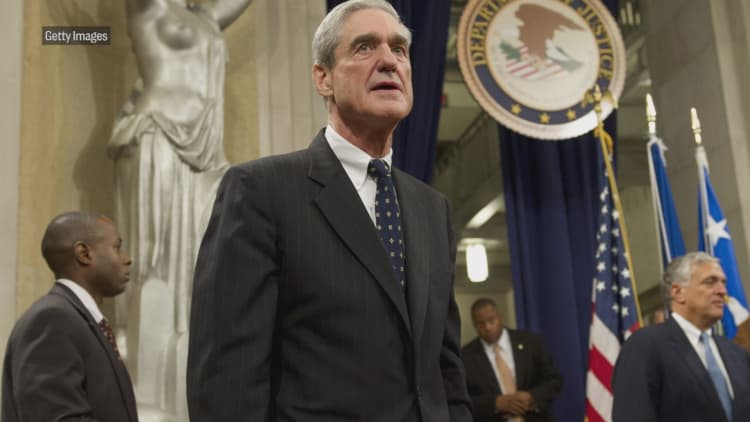
In 1974, the Supreme Court, in a unanimous decision, ordered President Richard Nixon to turn over tape recordings and other items in response to a subpoena issued by Leon Jaworski, the special prosecutor investigating the Watergate scandal.
And more than two decades later, the Supreme Court rejected President Bill Clinton's effort to resist being subpoenaed for his testimony in a sexual-harassment lawsuit brought by Paula Jones.
Clinton's lie denying his sexual relationship with White House intern Monica Lewinsky in that subsequent deposition led to him being impeached in 1998. Clinton was acquitted, however, in the Senate.
Pleading the Fifth
Brennan, the former Manhattan prosecutor, said that if Trump is ultimately subpoenaed by Mueller, "You go into it with the ability to plead the Fifth."
The Constitution's Fifth Amendment prevents an individual being compelled to give testimony against himself.
"I would tell Mueller, 'I'm not answering any of your questions,' " Brennan said.
Gerald Lefcourt, a New York City criminal defense lawyer who battled against then-prosecutor Giuliani in a high-profile municipal corruption trial in the 1980s, said he believes his former adversary "seems to be setting up a Fifth Amendment response to a subpoena."
Lefcourt noted Giuliani's comments about Mueller's probe, which include calling it a "witch hunt."
"There's no question that the amount of government misconduct is accumulating," Giuliani said on ABC on Sunday. "I happen to believe it's greater than anybody realizes. Very embarrassing to my former Justice Department."
Lefcourt said comments like that could be used to justify having a sitting American president plead the Fifth Amendment.
"If the government is so bad, and out of control, asserting the Fifth is not because you fear you've done something wrong, but rather a way of protecting yourself from being set up by unfair prosecutors," Lefcourt said.
WATCH: Mueller takes little notice of news developments
